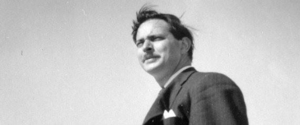To be frank we were thinking of not commenting on the passing of former Premier Jacques Parizeau. Enough has been written in our pages over the years. Our disagreements with him are on the record. Yet some of the outpouring of opinion on him in recent weeks ascribing so many achievements to him - so much nobility of purpose - demonstrated such a lack of intellectual rigour, so much pandering to political correctness, that we felt some perspective was in order.

Many political leaders, in many countries, following many beliefs, "stick to their purpose." But not all purposes are created equal. And when some are wrong - very wrong - that is no credit to recommend those who stick by them.
Parizeau, born into a family of privilege and position,was a high-ranking and brilliant economist who served in the 1960s at the highest echelons of Quebec bureaucracy. He certainly helped with the implementation of the mechanics of Jean Lesage's "Quiet Revolution." But from the time of his famous 1969 train ride to Banff when he said he "got on the train as a federalist and got off as a separatist" he dedicated his energies to the destruction of this country using any rhetorical and revisionist devices to reach his single-minded goal.
The root of the Parizeau dilemma is that this worldly, educated man chose to ally himself with the extreme wing of the secessionist movement. He stood by silently as his cohorts not only demanded "auto-émancipation" for the majority, but also "auto-abnegation" - self abnegation - of the minority. He himself finally got so caught up in the propaganda of "sang et langue" - blood and language - that he blurted out his infamous "ethnics and money" comment on the night of the 1995 referendum loss, even though the last thing he was was a racist.
It was not as if Parizeau simply dedicated himself to achieving independence. Reasonable people can agree that a political jurisdiction may seek independence if there is a democratic process, clarity of question and respect for the rights - and acquired rights in Quebec's case - of all minorities as required by international law. But Parizeau went further.
He led that wing of secessionists who practice historical revisionism falsely portraying francophones as a native people in their native land put upon by "les autres" - the others; abided and abetted the denigration of non-francophones by those in his party and governments who curbed Canadian civil rights even in the face of Supreme Court decisions; and raised the tone and temper of public polemic and discourse to such a screed that it led to the largest emigration from Quebec - of francophones and non-francophones ali,e - since the 1976 election.
Parizeau's politics hurt people. They divided families. They destroyed opportunity. They inflamed culture war and cultural extremism. They turned hope into ashes.
It is a tragedy - almost Shakespearean in nature - that this most cosmopolitain and talented of men got caught up in the maelstrom of an ambition so all-encompassing, that he forgot what was just and true and decent. And so did much of a generation of his followers. That too, sadly, is his legacy.

























Commentaires
Veuillez vous connecter pour poster des commentaires.